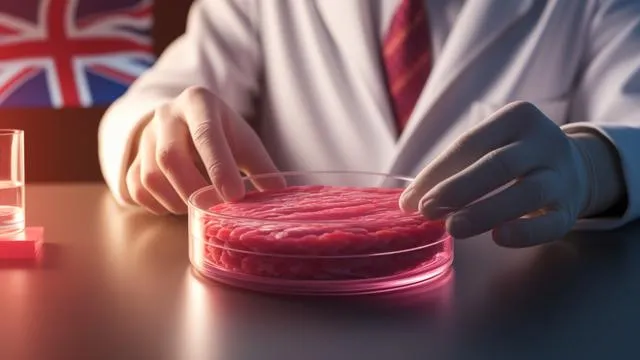In a groundbreaking shift towards sustainable eating, the UK is on the brink of introducing lab-grown meats to its consumers. This innovative approach to food production, which involves cultivating meat from animal cells in a laboratory setting, promises to revolutionize the way we think about and consume meat.
With the potential to hit UK shelves within the next two years, these cell-cultivated products (CCPs) are not just a testament to scientific advancement but also a beacon of hope for environmental sustainability. The production of CCPs significantly reduces the need for vast agricultural lands and cuts down on greenhouse gas emissions associated with traditional livestock farming, offering a greener alternative to meat consumption.
Despite the excitement, the journey to approval has been fraught with challenges. Companies pioneering in this field have faced hurdles in navigating the regulatory landscape, particularly with the Food Standards Agency (FSA). However, a recent announcement from the FSA signals a turning point. A dedicated team of scientists and regulatory experts is now tasked with conducting rigorous safety assessments of CCPs, paving the way for their approval and eventual sale in the UK.
This move not only underscores the UK's commitment to fostering innovation in the food sector but also highlights its ambition to lead in sustainable food production. Among the companies at the forefront of this revolution are UK-based Hoxton Farms, Roslin Technologies, and Uncommon, alongside international players like BlueNalu from the US and Mosa Meat from the Netherlands.
While the focus has predominantly been on meat and seafood, the technology also holds promise for the cultivation of vegetables, expanding the scope of lab-grown foods. As the UK edges closer to making lab-grown meats a reality for its consumers, questions about taste, nutritional value, and public acceptance remain. Yet, the potential benefits for the environment, animal welfare, and food security are undeniable, marking a significant step forward in our quest for sustainable and ethical eating habits.










